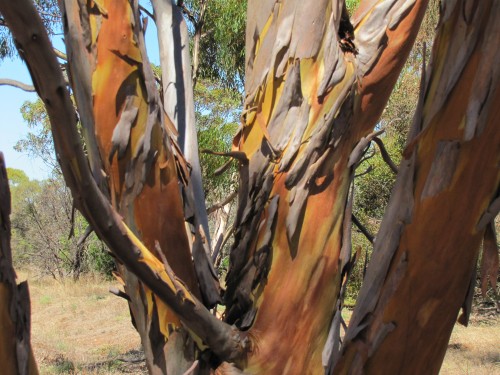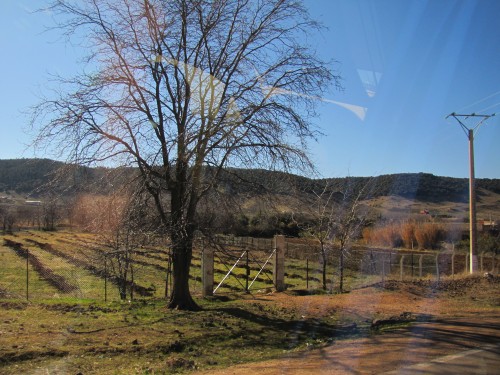Sacred Kingfisher
Flash of blue-green
Lights up the early morning
Drabness of the mallee trees
Just metres from our breakfast table.
We sit transfixed by the kingfisher
On a dead branch overhanging our rose garden.
Tail-flicking and head bobbing
It surveys the garden for its breakfast.
It drops to the ground, a living arrow
Of death for a beetle, gecko or native cockroach,
A quick gobble and it’s gone,
A kingfisher gourmet delicacy.
It reads my mind, lingers long enough
For photos, posing in a variety of settings
But always within reach of my camera lens,
A modest model robed in holy turquoise.
© 2013 Trevor W. Hampel All rights reserved.
To read more about this wonderful encounter, go to my birding site to read about “A beautiful guest at breakfast” . I’ve included several more photos on that post, too.



